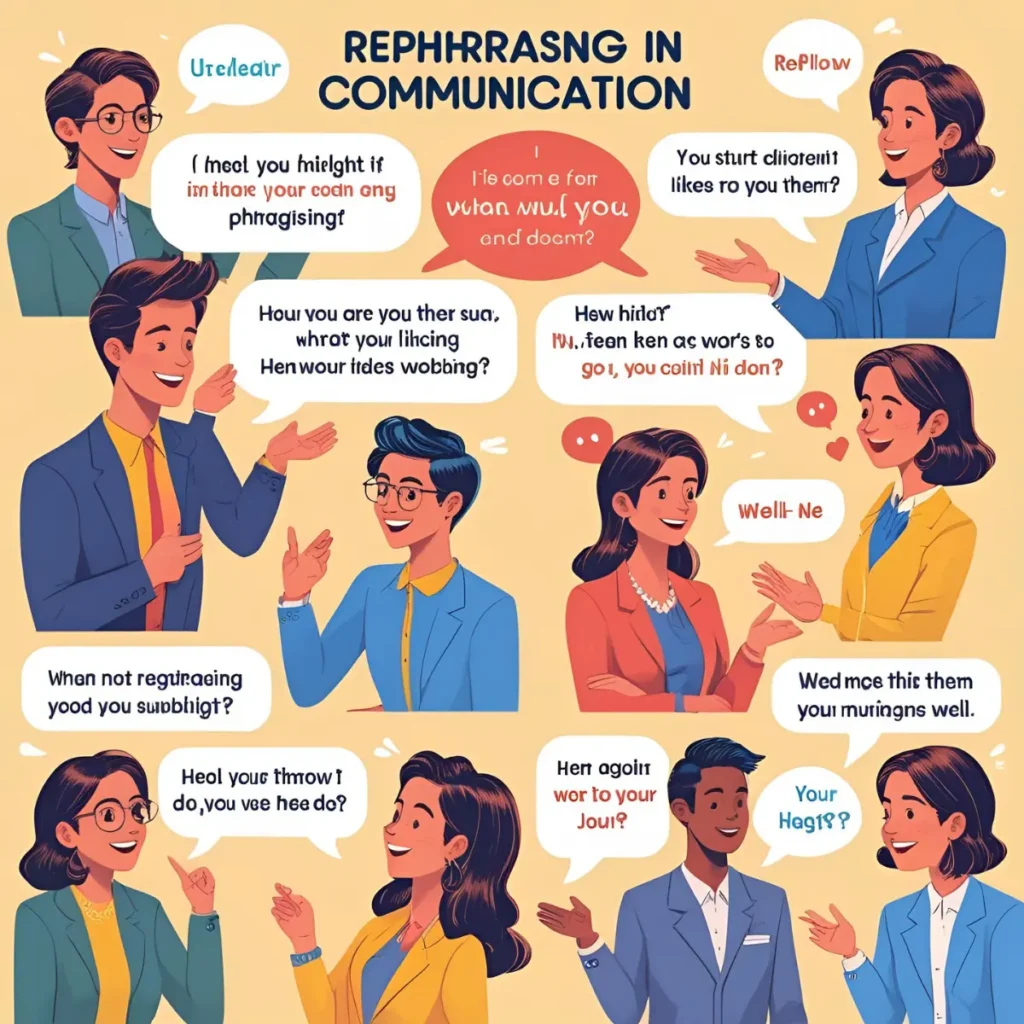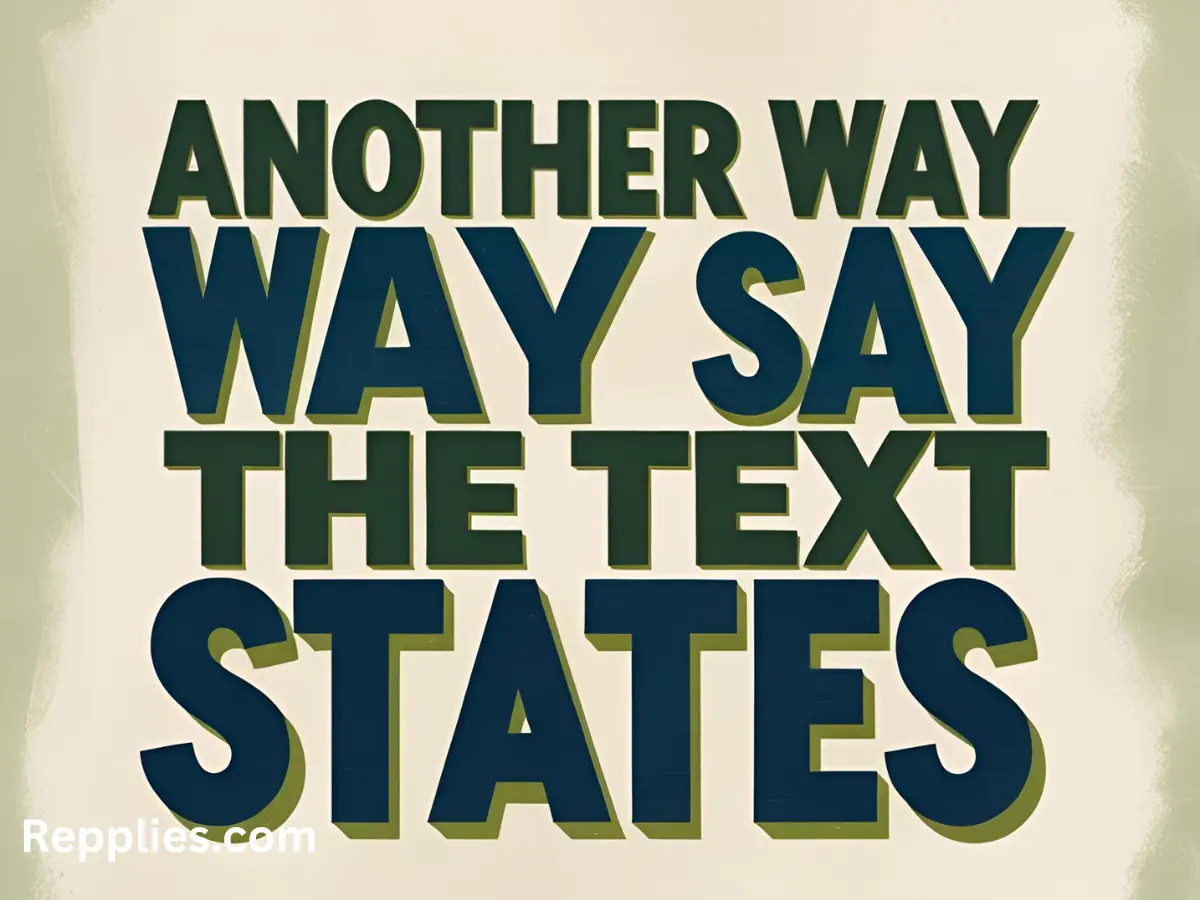Have you ever felt stuck trying to rephrase something you read?
Maybe you’re summarizing a book, writing a report, or explaining an article to a friend, but the words just don’t flow.
Finding another way to say the text states can feel like a puzzle, especially when you want to sound clear and original.
This struggle is real for students, professionals, and anyone who communicates ideas.
The good news? There are simple, creative ways to rephrase what a text says without losing its meaning.
In this article, we’ll explore practical alternatives to keep your writing fresh and engaging.
Let’s dive into how you can master this skill with confidence and ease!
Why Rephrasing Matters in Communication

Rephrasing a text helps you share ideas in your own voice. It shows you understand the material and keeps your audience engaged. Whether you’re a student summarizing a lesson or a professional presenting a report, saying the text states over and over can sound repetitive and dull. Using different phrases makes your work stand out.
Real-life scenario: Imagine you’re in a book club discussing a novel. Instead of repeating “the text states,” you could say, “The story explains…” This keeps the conversation lively.
Examples:
- Say: “The article points out…”
- Don’t say: “The text states” every time.
Formal Alternatives for Professional Settings
In professional or academic writing, you need polished phrases to replace the text states. These alternatives sound sophisticated and show you’ve thought about the content deeply. They also help you avoid sounding repetitive in reports, essays, or presentations.
Real-life scenario: You’re writing a business proposal summarizing research. Instead of “the text states,” try “The study indicates…” This sounds confident and professional.
Examples:
- Say: “The report highlights…” or “The research suggests…”
- Don’t say: “The text states” repeatedly in formal documents.
Casual Alternatives for Everyday Conversations
When chatting with friends or explaining something informally, you want phrases that feel natural. Using another way to say the text states in casual settings makes you sound relatable and keeps the conversation flowing.
Real-life scenario: You’re telling a friend about a news article. Instead of “the text states,” you might say, “The article says…” It’s simple and fits the vibe.
Examples:
- Say: “The story goes…” or “It mentions…”
- Don’t say: “The text states” in relaxed talks.
Creative Alternatives for Writing and Storytelling
If you’re a writer or storyteller, you want your words to spark imagination. Rephrasing the text states with creative phrases adds flair to your work. It helps your audience stay hooked and makes your writing memorable.
Real-life scenario: You’re writing a blog post about a historical event. Instead of “the text states,” try “The chronicle reveals…” This draws readers in.
Examples:
- Say: “The narrative unveils…” or “The passage describes…”
- Don’t say: “The text states” in creative pieces.
How to Rephrase Without Losing Meaning
Rephrasing isn’t just about swapping words—it’s about keeping the original idea intact. To find another way to say the text states, focus on the core message and use synonyms or different sentence structures. This ensures clarity while adding variety.
Real-life scenario: You’re summarizing a science article for a class. Instead of “the text states,” you could say, “The study explains…” and still convey the same facts.
Examples:
- Say: “The document clarifies…” or “It outlines…”
- Don’t say: Exact quotes without rephrasing, as it may seem lazy.
When to Avoid Overcomplicating Your Phrasing
Sometimes, simple is best. While finding another way to say the text states is helpful, overcomplicating your words can confuse your audience. Stick to clear phrases that match the context and your reader’s needs.
Real-life scenario: You’re explaining a manual to a coworker. Instead of fancy phrases, “The guide says…” is clear and effective.
Examples:
- Say: “The instructions note…” or “It states…”
- Don’t say: Overly complex phrases like “The manuscript elucidates…” in simple contexts.
Conclusion
Finding another way to say the text states is a powerful skill that makes your communication clear, engaging, and versatile.
Whether you’re writing a report, chatting with friends, or crafting a story, these alternatives help you share ideas in your own voice.
By practicing different phrases, you’ll avoid repetition and keep your audience interested.
So, next time you’re tempted to say “the text states,” try one of these creative options and watch your words come to life!



